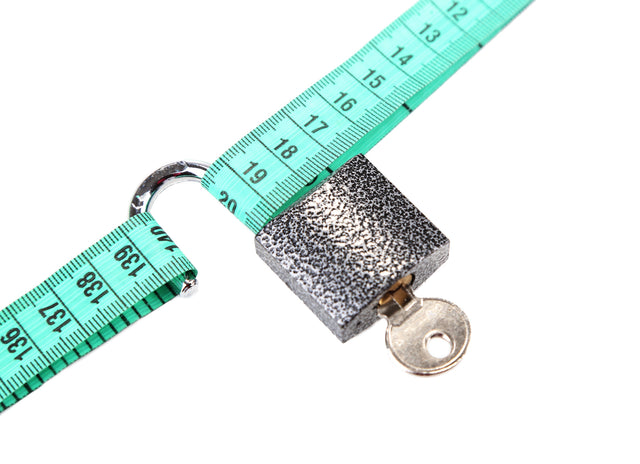You show up to the box, set your bag down, see your gym fam, lace up your shoes, and grab a PVC to warm up. As you’re stretching out your shoulders doing some pass-throughs you decide to check out the WOD on the whiteboard. Oh no, there they are… double unders. Why are you fretting? Because you didn’t wear black pants. Why do you need black pants instead of the hot pink ones that you’ve got on? You pee during double unders.
While you might be improving your endurance, clocking better times during 2k rows and making some serious strength gains in your favorite movements, this one alludes you, and incontinence keeps you from peak performance and moving through the days WOD with ease. Incontinence is generally more prevalent in women than it is in men and it could be tied to low testosterone levels.
With recent research emerging, researchers are finding that female athletes who participate in high impact sports are more likely to suffer from urinary incontinence than those who don’t. What may be to blame are low testosterone levels, and good news for you, we’re going to help you learn how as a female (or male, really), you can increase your natural testosterone levels to reduce your chance of a weakening pelvic floor and urinary incontinence. Let's learn more about how to make the critical connection between testosterone and urinary incontinence.
What is Urinary Incontinence?
Urinary incontinence is the unintentional loss of urine. Stress urinary incontinence (SUI) happens when physical movement or activity — such as coughing, sneezing, running or heavy lifting — puts pressure (stress) on your bladder. Stress incontinence is not related to psychological stress and this is the type we'll be referring to in the remainder of this article.

One study done by researchers in Norway took a closer look at the prevalence of SUI in women on their Norwegian National Team. Out of 600 women, 26 percent recalled instances of an SUI indicating a high prevalence of stress and urge incontinence in female elite athletes.[R]
In another cross-sectional study took a look a the prevalence of SUI in different high-intensity sports. Out of 278 active women, 23.8 percent of those women who claimed to experience incontinence were athletes. The second highest group was female volleyball players, with 19.6 percent experiencing SUI. In conclusion, volleyball players had a 16 percent chance of getting SUI compared to other athletes who played other, less intense sports. [R]
RELATED ARTICLE: Urinary Incontinence In Female Athletes
3 Causes of Stress Urinary Incontinence
- A genuinely weak pelvic floor
- An overactive pelvic floor
- A strong pelvic floor but an imbalanced inner core
- Low Testosterone Levels
The Benefits of Testosterone For Women
Testosterone is a very powerful hormone. In fact, testosterone is the most abundant biologically active hormone in women. Women, however, are much more sensitive to androgens than men, and the amount of testosterone in your body can vary [R]
Low T In Women: A Bigger Issue Than You May Realize
Women produce testosterone in the ovaries and fat cells in much smaller, but necessary amounts, as compared to her male counterpart. When testosterone is combined with estrogen in the female body, a woman enables her natural ability to increase growth, maintenance, and repair of her bone mass, reproductive tissues, muscle mass, and overall functioning.
This includes the pelvic floor musculature and fascia, too.
So if you’re tinkling during a WOD, and you continue to despite how many strengthening exercises or Kegels you do, then low testosterone levels may be to blame.
Imbalances of testosterone, both high and low in women, can have serious and often damaging effects on overall health, including the ability to produce new blood cells, sex drive, sports/activity performance, muscle building/maintenance, mood, urinary function, and more. Recent research published in 2018 found that core muscles of the trunk and pelvis are responsive to testosterone administration. [R]
STUDY: Low Testosterone Increases Women’s Urinary Incontinence Risk
In a study of 2123 women who participated in the 2012 cycle of the National Health and Nutrition Examination Survey and underwent measurements of serum total testosterone, Michelle Kim, MD, PhD, of Massachusetts General Hospital in Boston, and colleagues found that women in the lowest quartile of testosterone level had 48% increased odds of stress incontinence and 65% increased odds of mixed incontinence compared with women not in the lowest quartile.
“The potential mechanism is that testosterone may prevent pelvic floor atrophy, thereby reducing the risk of urinary incontinence,” Dr. Kim said in a press conference. [R]
Before we go into what you can do to increase testosterone levels naturally, let’s examine the symptoms to look for, in addition to experiencing urinary incontinence.
Symptoms of Low T In Female Athletes
Low levels of T in women often goes undiagnosed because symptoms, like flagging desire and general malaise, have a variety of causes, and thanks to the categorization of “men’s hormones” and “women’s hormones”, many physicians overlook testosterone levels in women due to societal gender norms.
Low androgen and low T levels in women can occur at any age, but are more commonly associated with menopause or “peri-menopause”. It's important to understand what to look for, symptoms-wise when you're considering if you have low testosterone levels.
Symptoms of Low T In Women:
- Decreased Sex Drive
- Urinary Incontinence
- Loss of Pelvic Floor Control
- Decreased Musculoskeletal Health
- Depression & Mood Swings
- Inability to Gain Muscle w/ Increased Weight Gain
- Muscle Loss
- Mental Fogginess
- Chronic or Physical Fatigue
How To Treat Low T In Women
These are all symptoms of low T in women and possible androgen or female testosterone deficiency. These symptoms are becoming increasingly recognized, as they can severely disturb your wellbeing, considering that testosterone is essential for a woman’s physical and mental health.
Before we go any further, NO! Testosterone does not masculinize women.
Effective doses of vitamins and minerals to elicit the release of natural testosterone will actually stimulate and increase femininity, as well as your body’s ability to strengthen your pelvic floor. However, pharmacological doses of free form testosterone can and may produce masculinizing traits.
Outside of supra-pharmacological doses of synthetic androgens, however, Testosterone does not have any masculinizing effects. So, NO! You will not turn into a man. You'll just turn into a stronger, healthier, and happier woman, and what could be better than that? Probably not peeing during a workout, just saying.
The Best Supplements To Naturally Increase Low T In Women and Reduce Urinary Incontinence
So what do you do if you are exhibiting symptoms of low testosterone and/or struggling with urinary incontinence during your workouts? Often times the symptoms of low testosterone are misdiagnosed or under-diagnosed. The first step is to consult your physician for a blood test.
The second step is to consider how you can naturally improve your testosterone levels through nutrition, such as by supplementing vitamins and minerals such as Vitamin B6, Magnesium, Zinc, Fenugreek and/or diindolylmethane (DIM).
Zinc
Zinc is a trace mineral and element that helps with important biological processes such as hormone balance, production, and regulation. Zinc also plays a vital role in fertility as it helps the production of estrogen and progesterone, which will also balance mood and vitality.
RELATED ARTICLE: The Health Benefits Of Zinc: What 12 Studies Say About Zinc & Immune Health
Magnesium
Magnesium is also a trace element similar to Zinc that increases free and total testosterone values [R] Magnesium is a required component of energy production, specifically on the production of ATP, which can help with mental and physical fatigue.
Vitamin B6
Vitamin B6 is an essential vitamin that must be obtained from your diet, which ensures a healthy hormonal balance of testosterone and estrogen [R].
Fenugreek
Fenugreek is a leguminous annual plant, which is native to India and China. It has been proven through several different clinical studies, that Fenugreek helps physiological aspects of strength, libido, and boosting testosterone levels [R].
RELATED ARTICLE: Fenugreek: The 3 Proven Health Benefits That Are Crucial For Athletes
Diindolylmethane (DIM)
DIM is a compound that is formed within your body when digesting foods that contain nutrient indole-3 carbinol. Indole-3 carbinol is found in vegetables such as broccoli, cauliflower, and Brussel sprouts. DIM also helps with hormone balance of testosterone and estrogen. DIM helps break down estrogen, to be utilized effectively by the body. DIM also reduces the levels of harmful estrogen metabolites, which helps decrease the loss of sex drive, breast pain, and balances mood.
RELATED ARTICLE: Ultimate Guide To Diindolylmethane (DIM)
Reducing Urinary Incontinence in Female Athletes
Pelvic floor integrity is an important predictor of urinary incontinence in women, especially those who are active or are athletes. Androgen receptors have been found in the pelvic floor muscle and tissues, and by increasing testosterone levels to a healthy level, researchers are finding that women can effectively increase hypertrophy and effectively improve urinary incontinence.
Naturally increasing your testosterone levels, could be exactly what you need to enhance your mood, increase energy levels, reduce urinary incontinence, obtain better sleep, increase strength and obtain a better quality of life. A great place to start is with a great supplement, like ZMT, from Swolverine.
Looking For A High-Quality Natural Testosterone Booster?
SWOLVERINE is an endurance athlete and active lifestyle brand. Made for the elite athlete, and the strong-willed our products were designed to fuel your athletic performance. We perform when you perform.
We believe that everyone can optimize not only their athletic performance but their human potential. The way we believe we can optimize performance is through transparency, clinically effective doses, and clinically proven ingredients with evidence-based outcomes. We provide the nutrients you need to power your active lifestyle.













